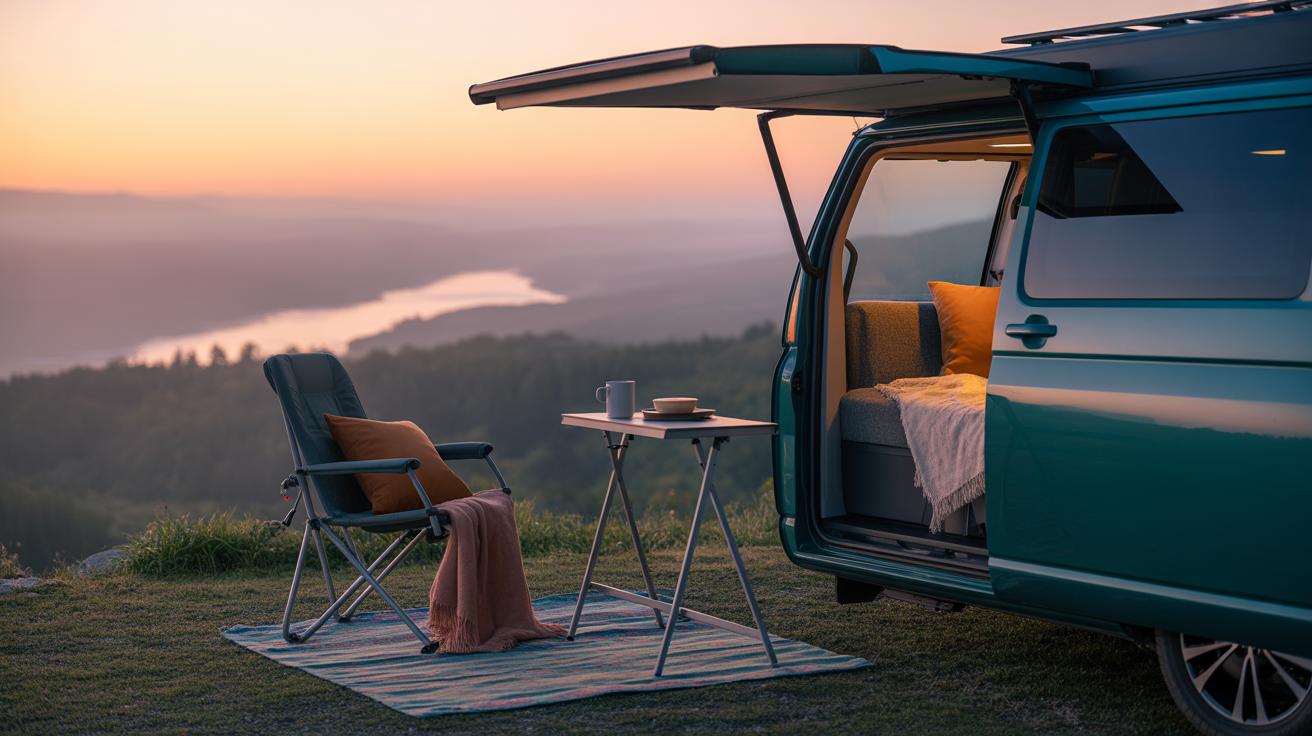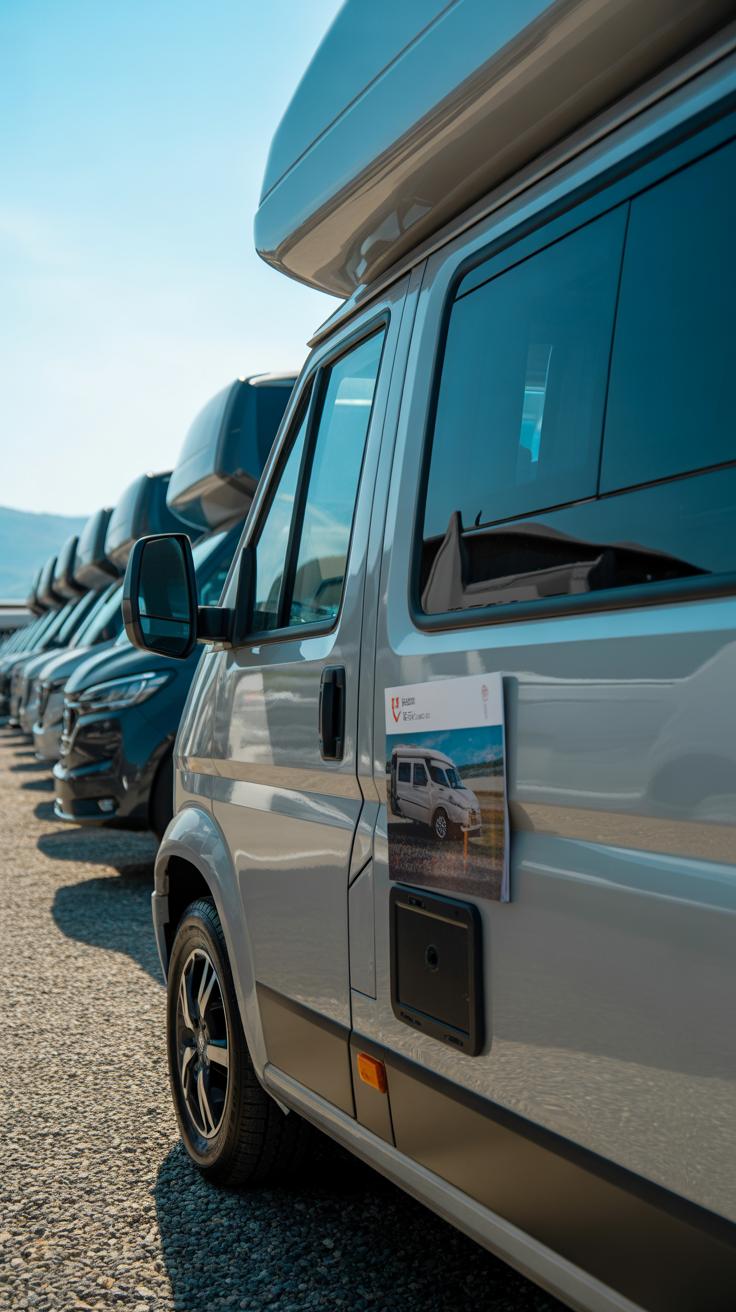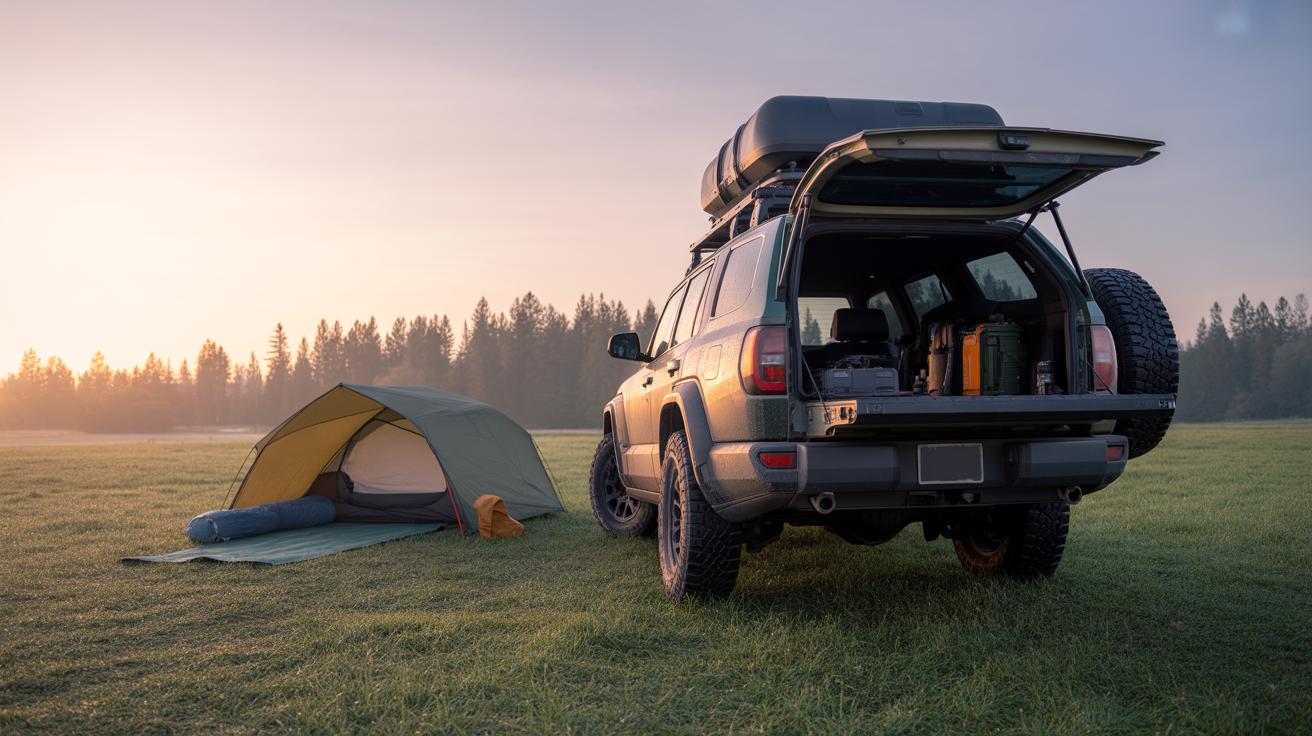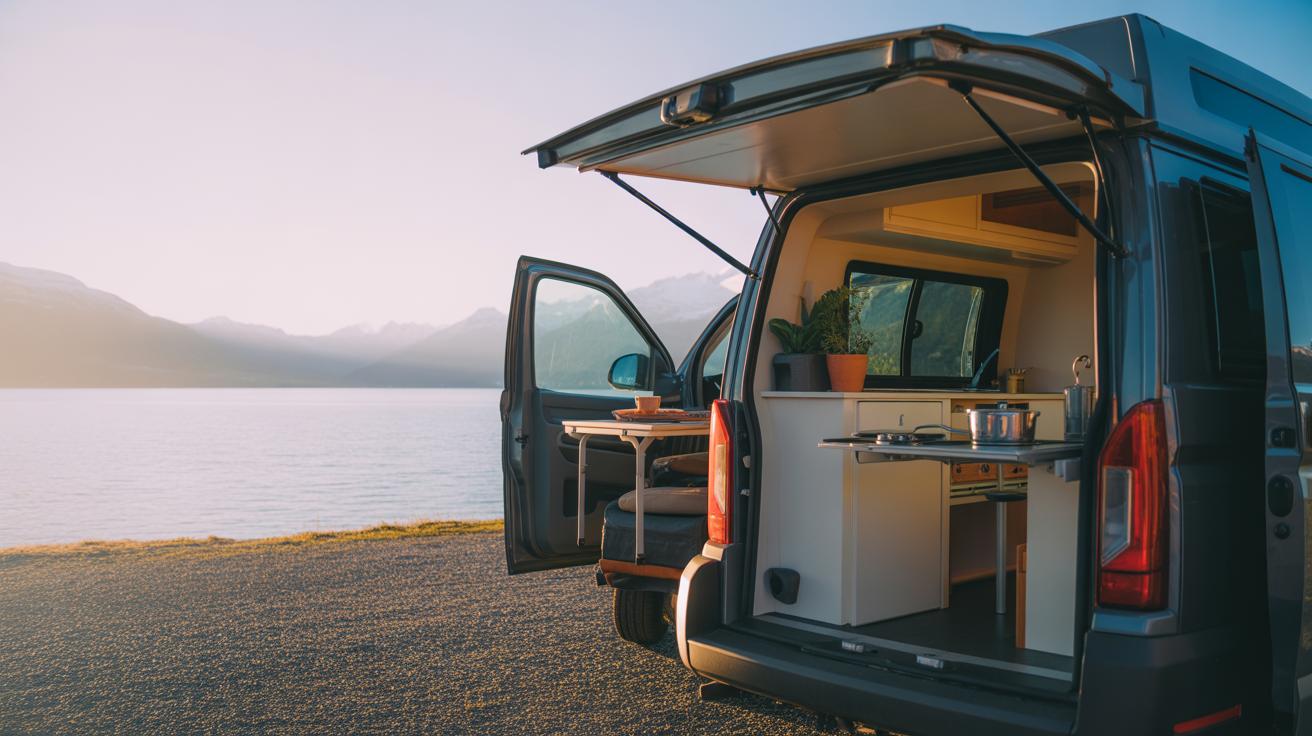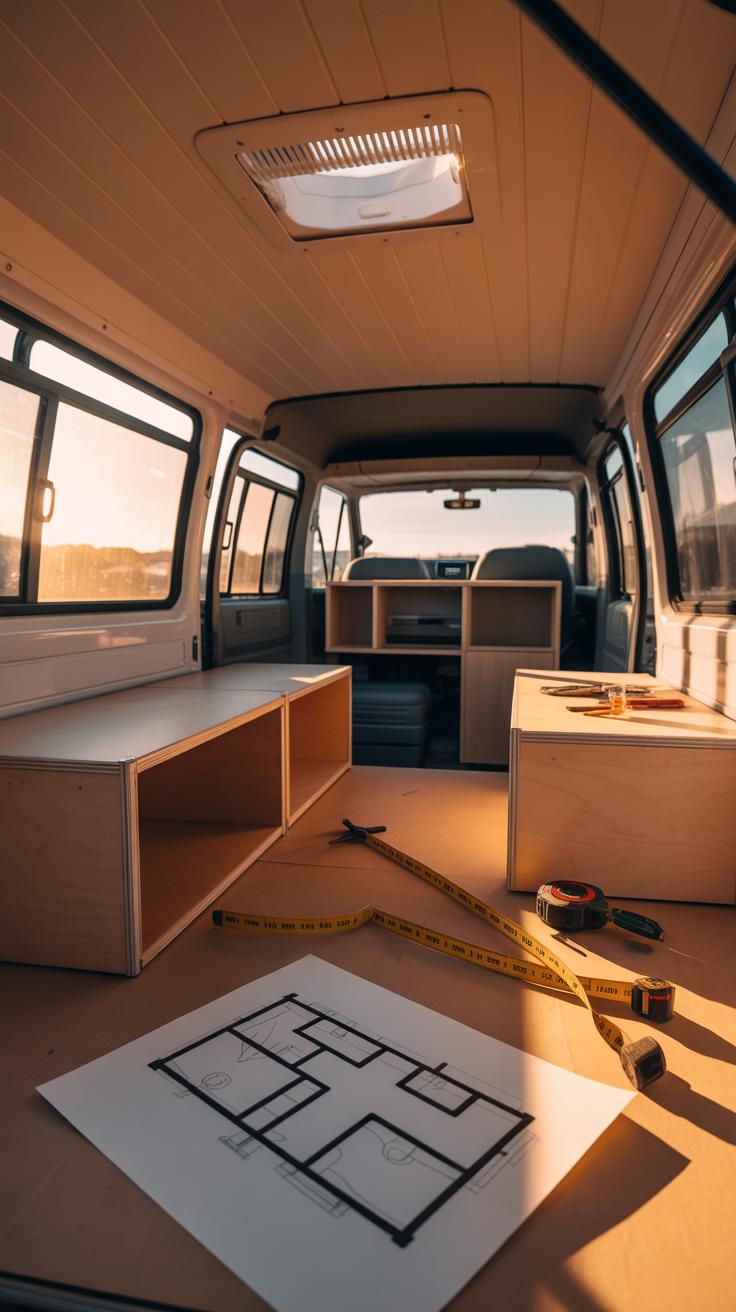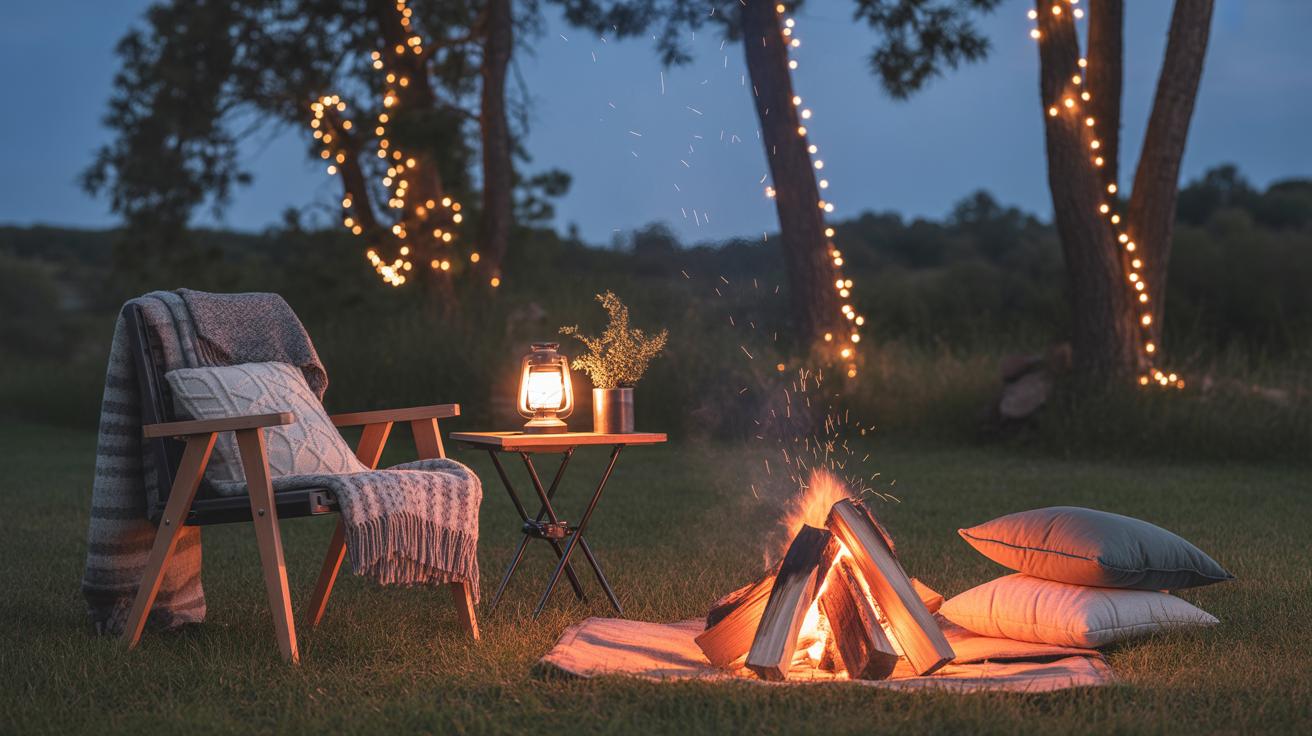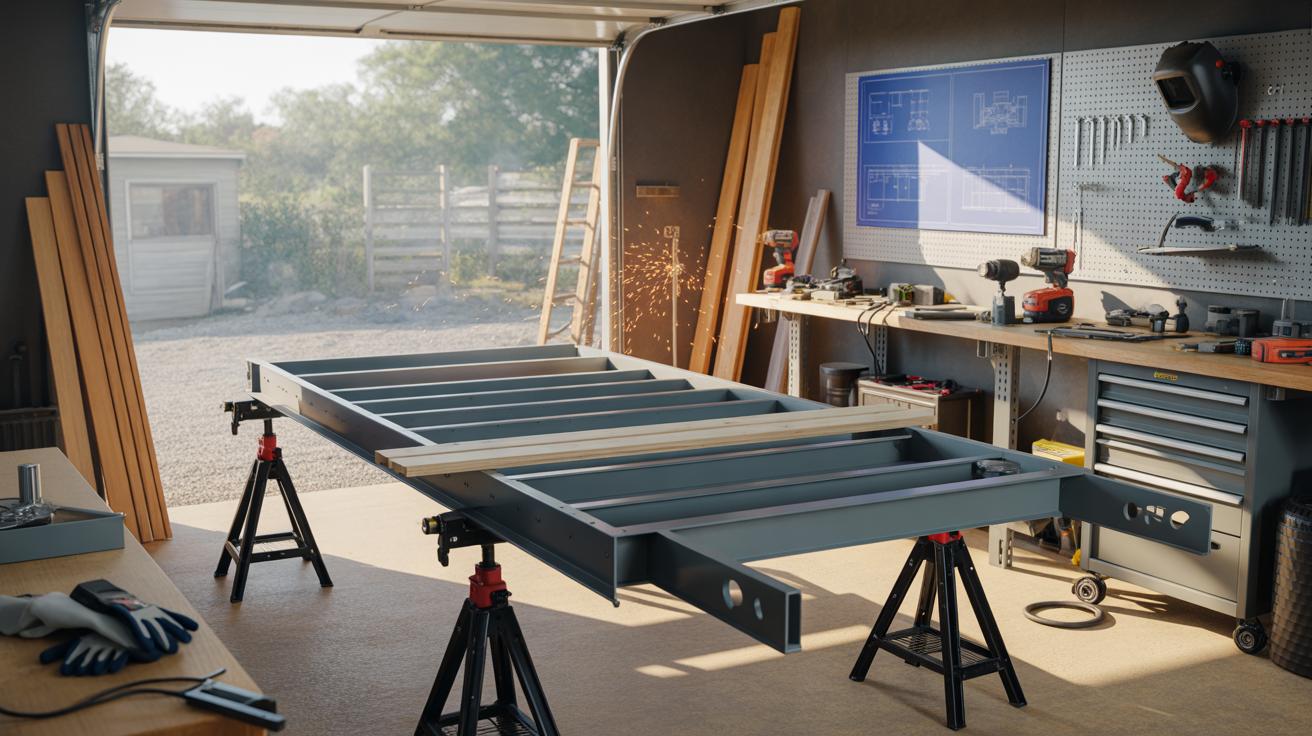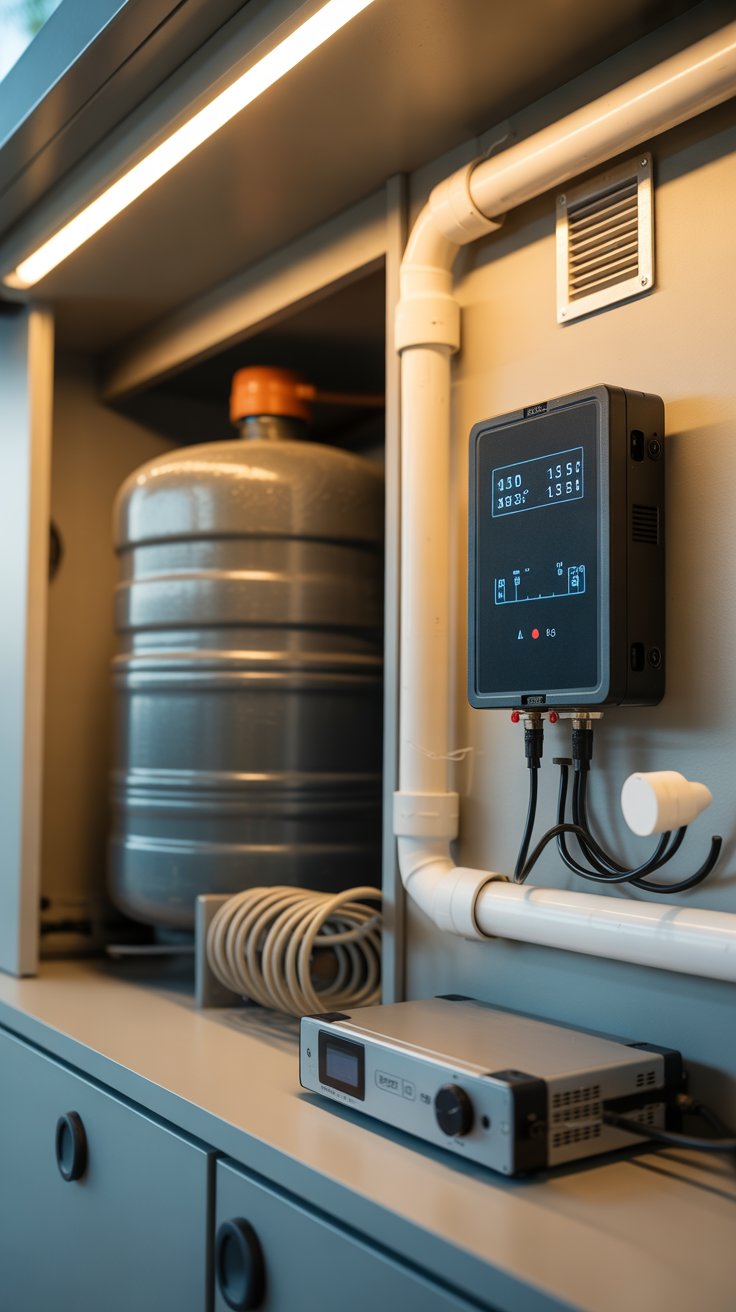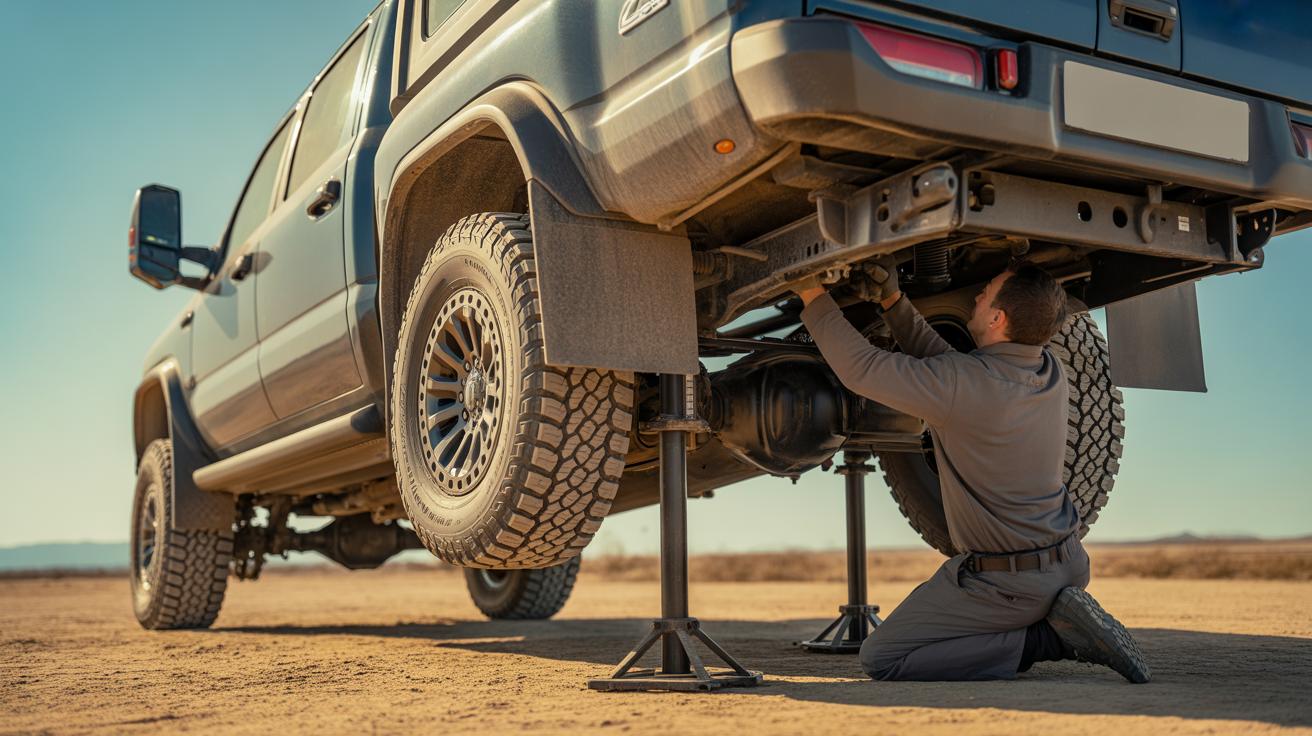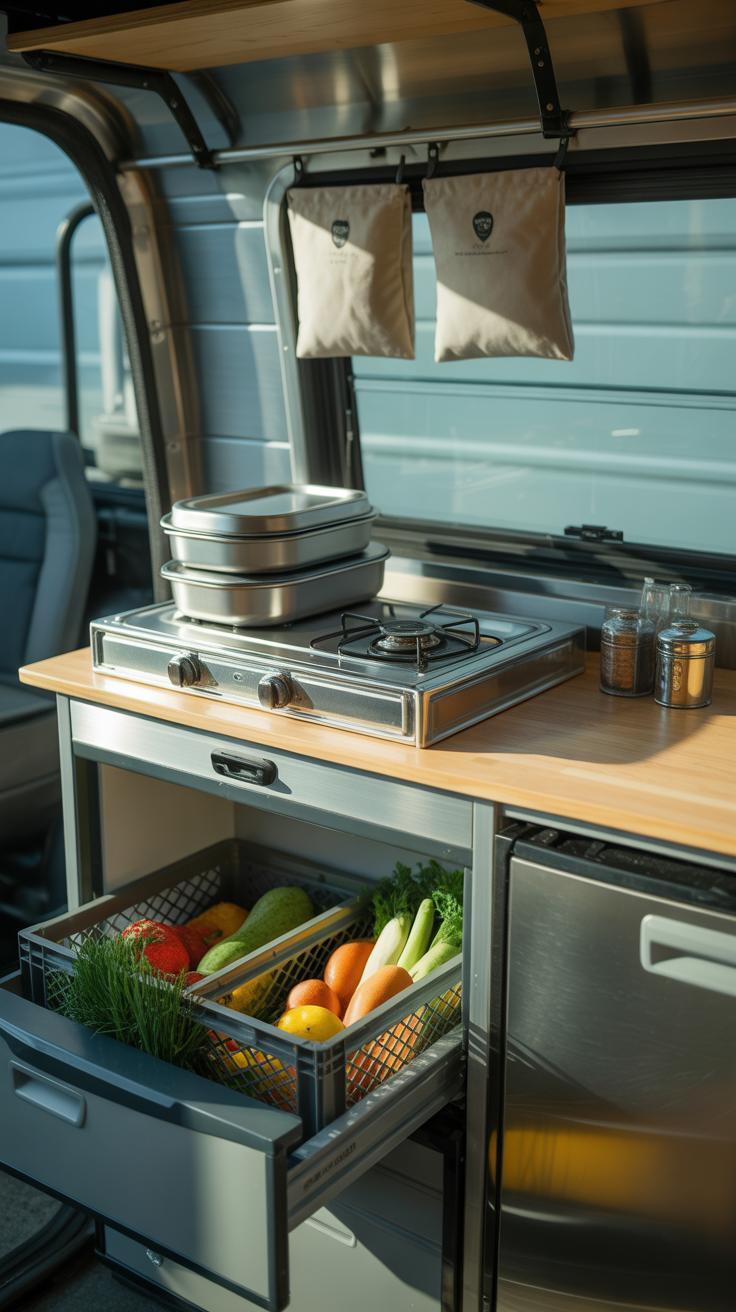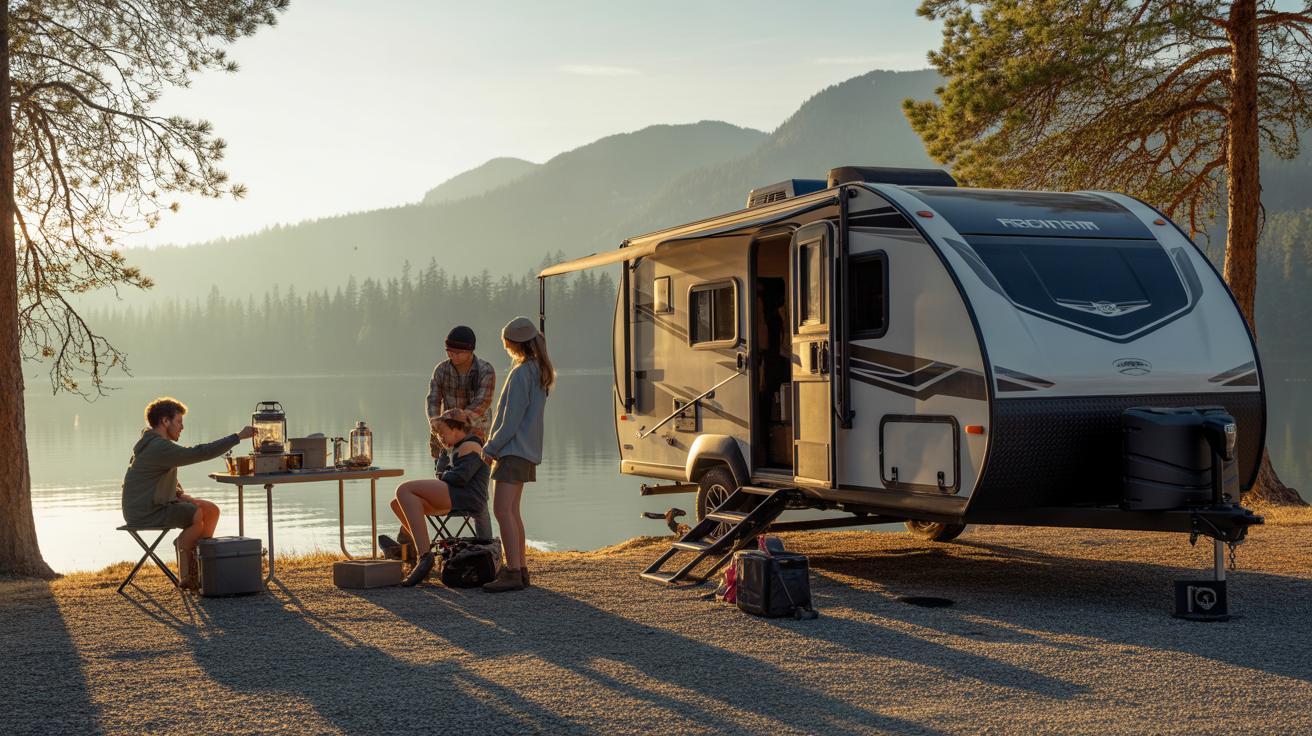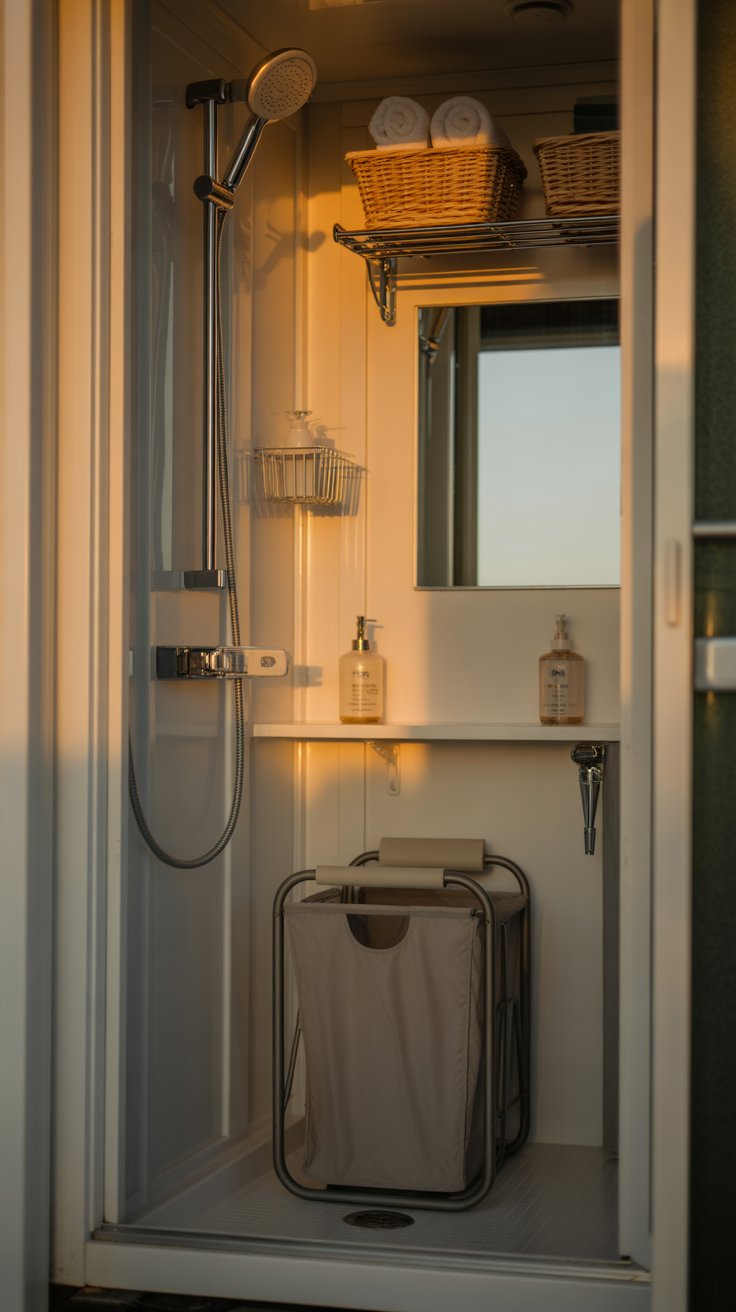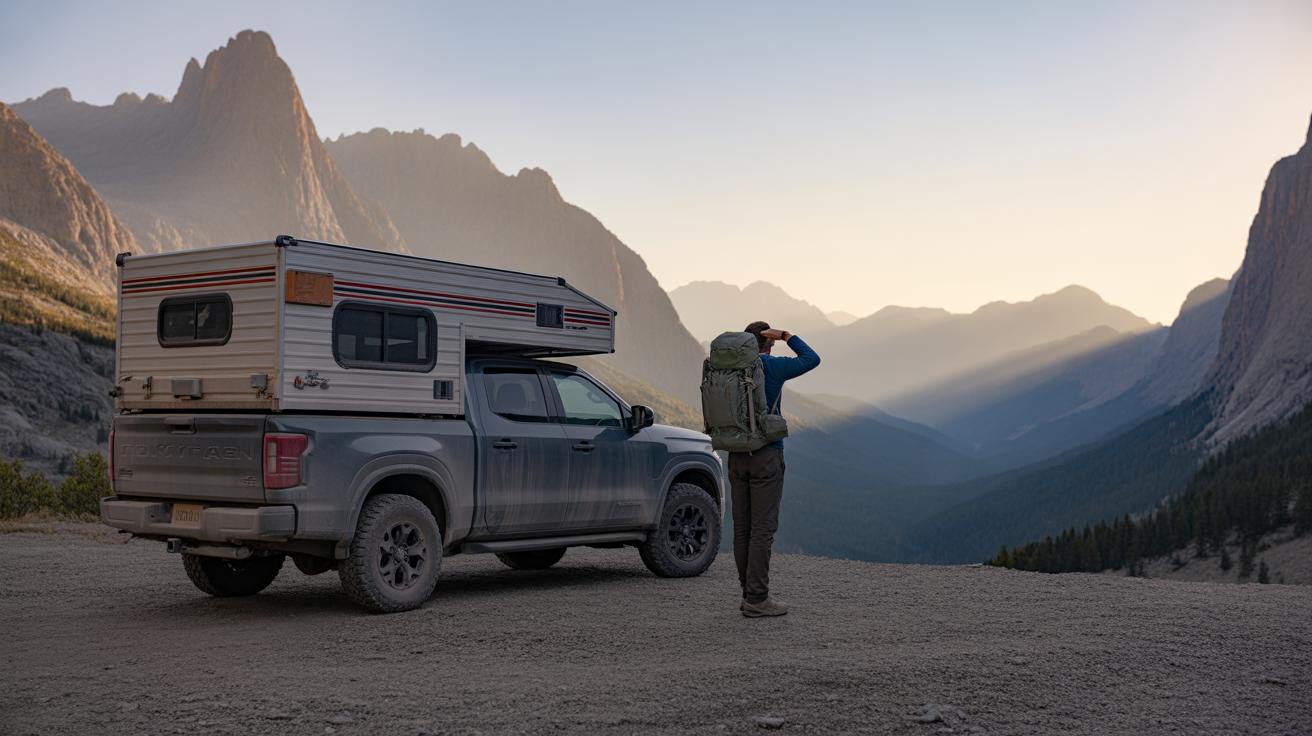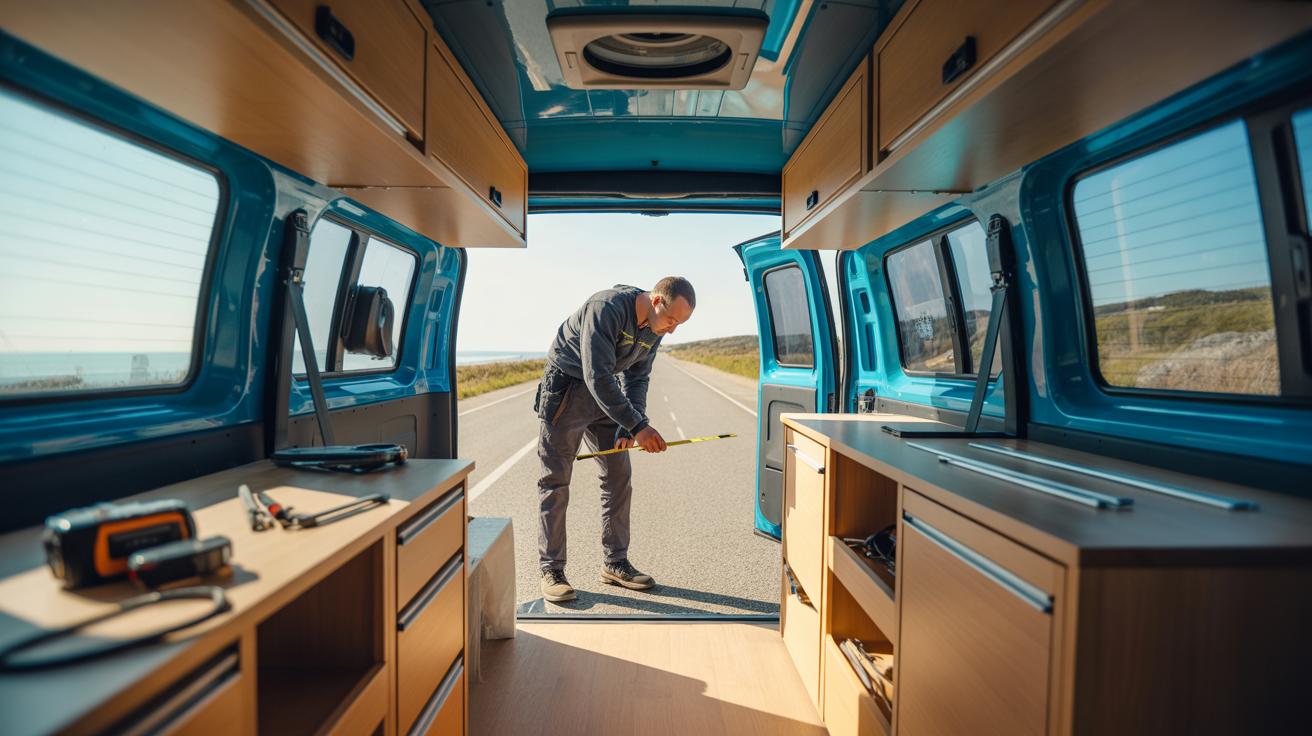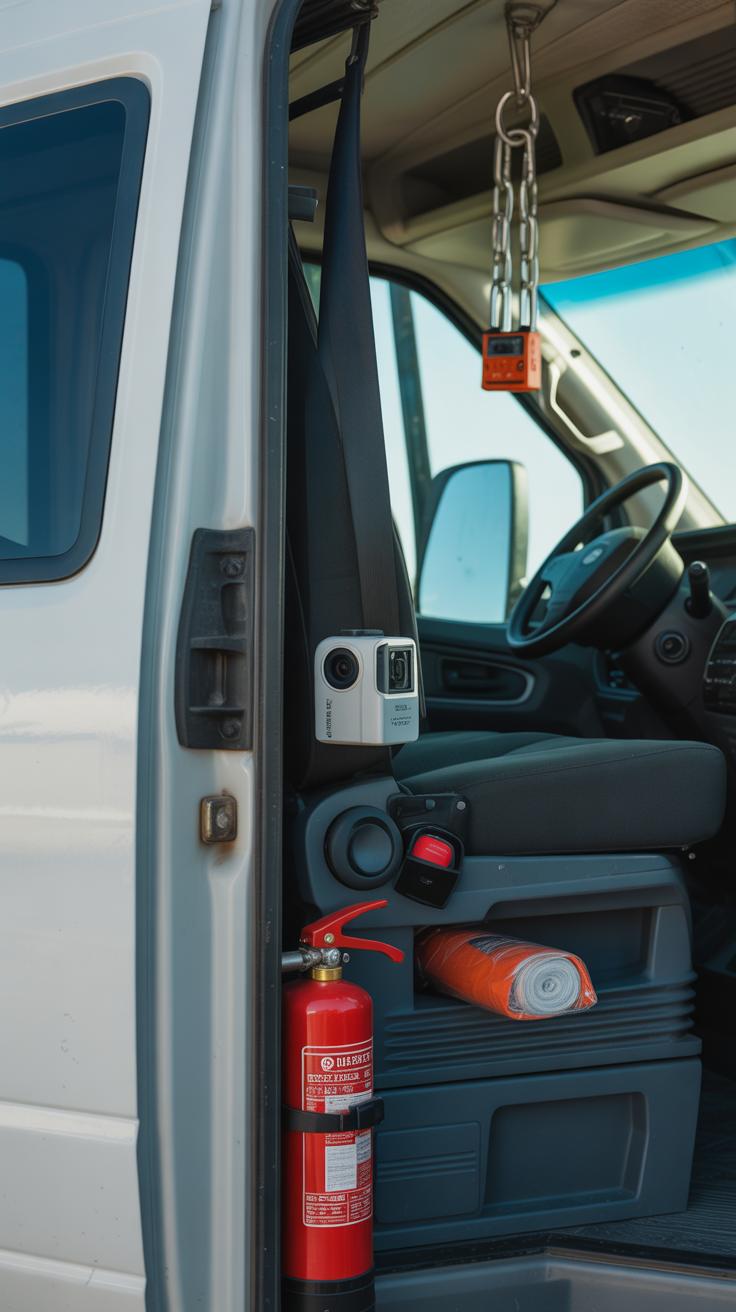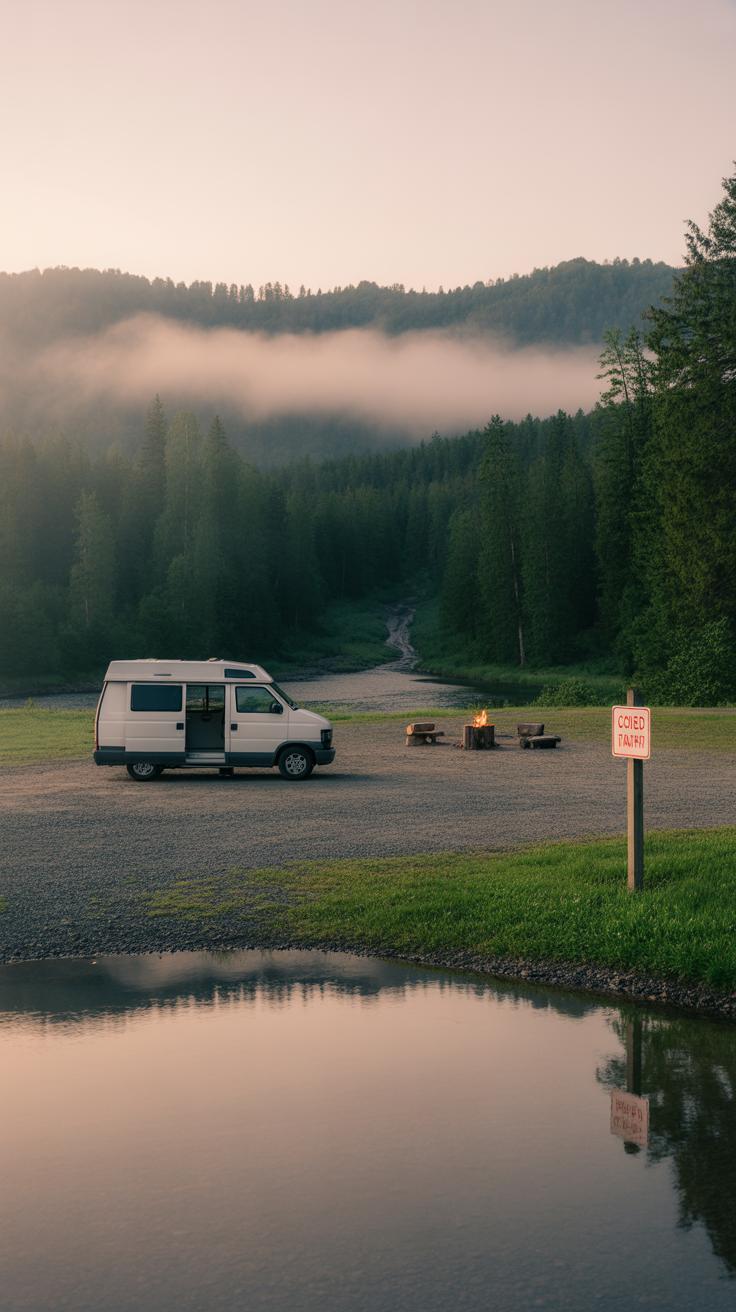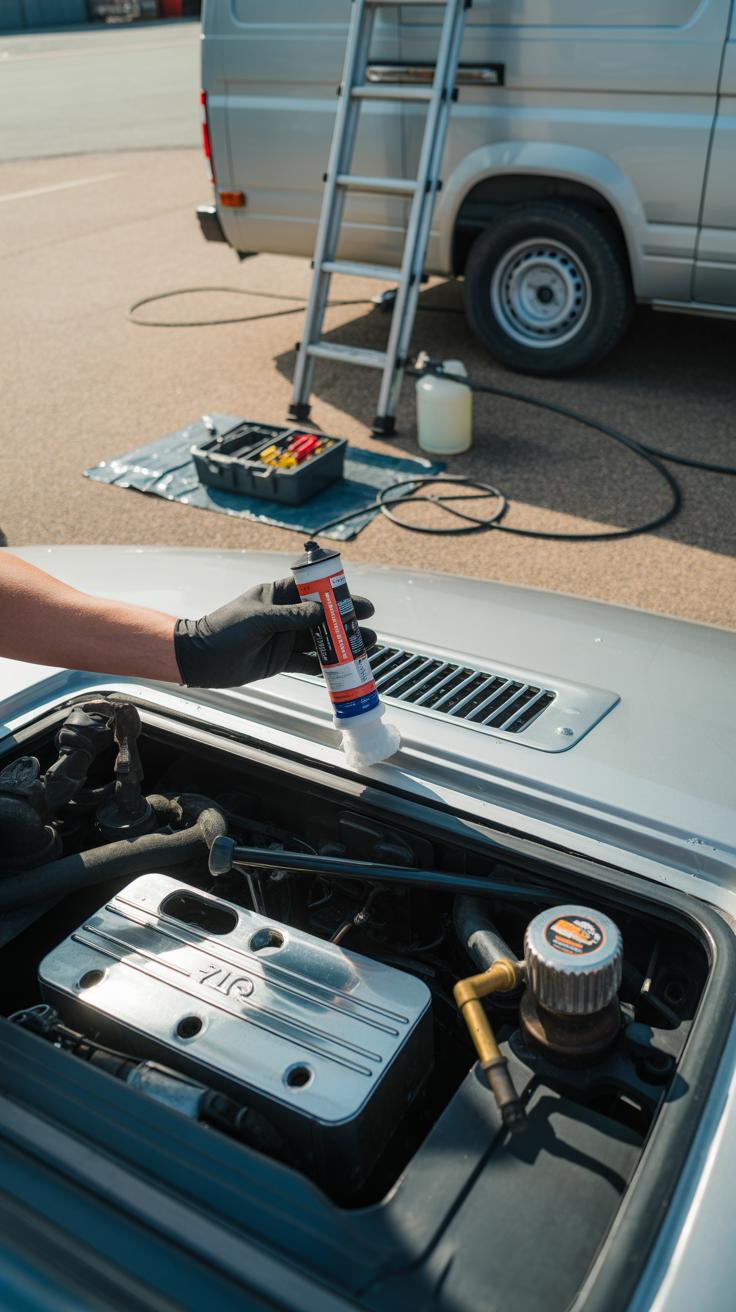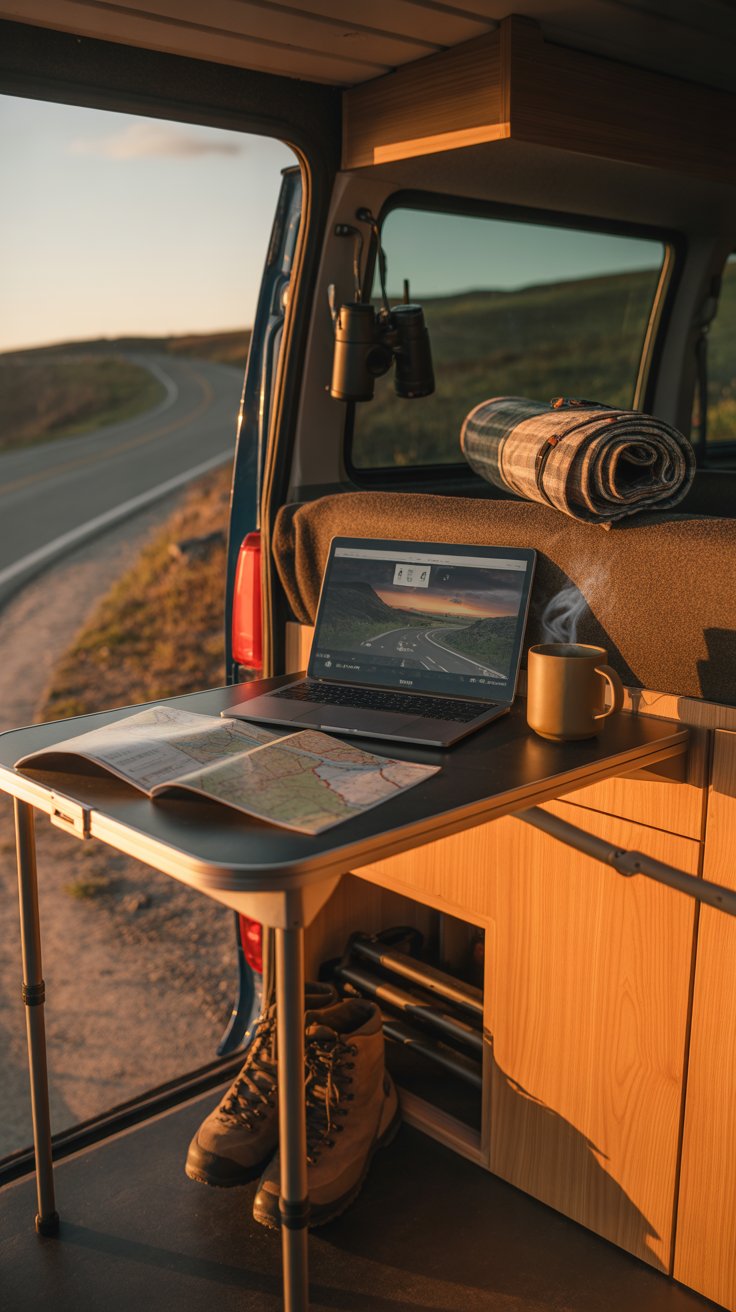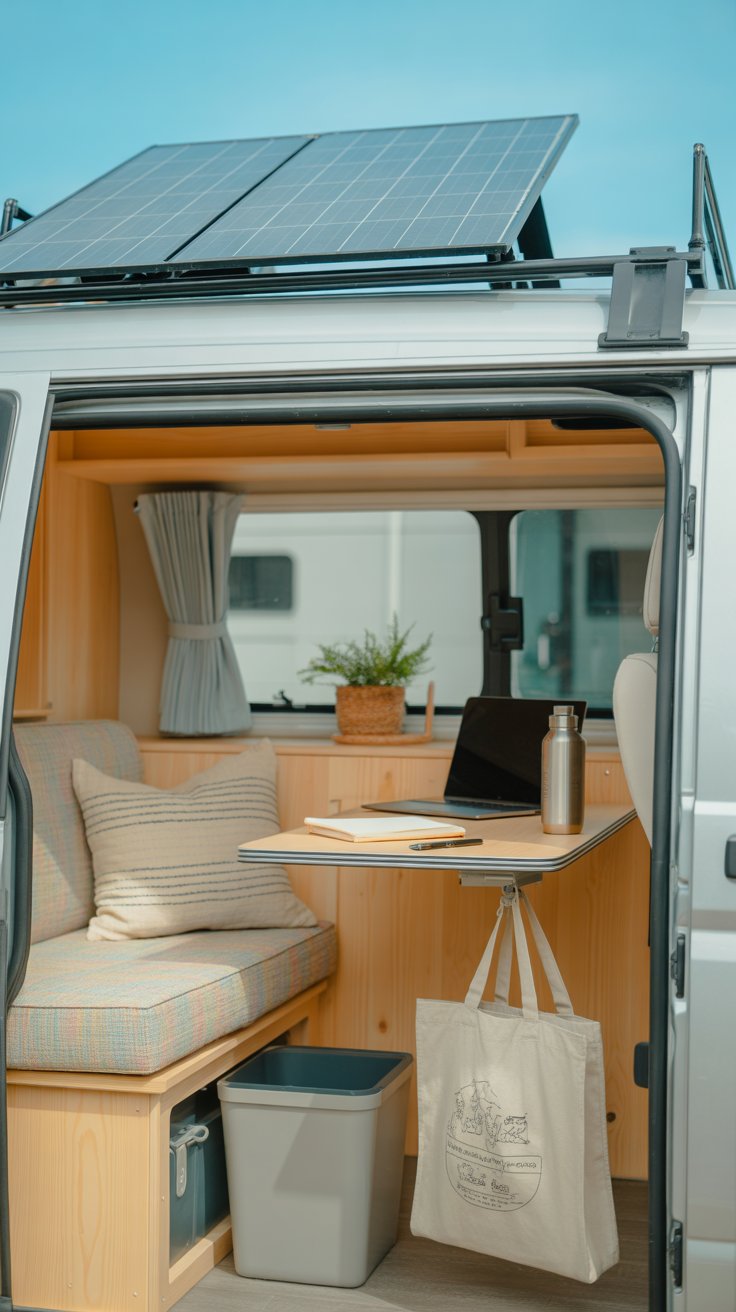Introduction
Living the camper van life offers freedom and adventure. You get to travel to many places while bringing your home with you. This guide will help you learn how to enjoy camper van life comfortably. From setting up your van to staying safe on the road, we’ll cover it all.
You will find practical advice on organizing your space, managing your resources, and staying connected. Whether you are new to this lifestyle or have some experience, this guide is made to help you live your best camper van life with ease and comfort.
Choosing the Right Camper Van
Picking your camper van feels tricky at first because there are so many options, but the key is to match it to what you actually need. Think about how you’ll travel—will you mostly be cruising highways or squeezing into tight city spots? Size matters, but not just in terms of space inside. Larger vans offer room to stretch but can be harder to park and cost more on fuel.
Budget is another big factor. If you’re tight on cash, a used van might be the way to go. But beware of hidden problems and repairs. A shiny, new camper van can be tempting, though it’s pricier upfront and might come with features you won’t even use. Ask yourself how often you’ll travel and how long you want to keep it before deciding how much to invest.
You might also want to consider the lifestyle angle—are you going solo, with a partner, or maybe a small family? This choice shapes the size and layout you’ll want. Sometimes a smaller, more basic van fits better than a flashy, large one, especially if you plan to be on the road a lot.
Different Types of Camper Vans
There are several camper van types to think about, each with pros and cons, really depending on what matters most to you.
- Class B Motorhomes: These are basically self-contained vans with built-in living quarters. Compact and easy to drive, but often pricier and with limited interior space.
- Converted Vans: Folks often buy these vans and customize them themselves. You get what you want, but it takes work and some handy skills.
- Pop-Top Vans: These have roofs that raise to add headroom—nice if you want more space but don’t want a big van. They can be less insulated and might add complexity.
Choosing between them depends on whether you prefer ready-made comfort or a bit of DIY adventure. There’s no absolute “best” camper van—just the one that fits your rhythm.
Budget and Buying Tips
Budgeting for a camper van is more than the sticker price. Think about ongoing costs: insurance, maintenance, fuel, and possible upgrades. Setting a cap before you start shopping helps, but you might find a good deal that pushes you to reconsider.
When deciding between new and used, remember new vans come with warranties but lose value fast. Used vans are cheaper but might hide issues like engine wear, electrical quirks, or leaks. Have a mechanic you trust check used vans thoroughly—seriously, take someone who knows vans inside out.
Before buying, look for rust, check the engine, test all appliances and fixtures if it’s already converted. Ask questions about past owners’ usage, accidents, and maintenance history. Sometimes you’ll have to choose between what you want and what’s available within your budget—patience pays off.
Designing Your Camper Van Interior
Space Planning and Storage Solutions
Living in a small space means you have to think carefully about every inch. You can’t just shove things in wherever; it has to be intentional. I found that using vertical space—like overhead cabinets or hanging nets—made a big difference. Opening drawers under beds or benches also gives hidden storage without eating up floor space.
Multi-use furniture is a game-changer too. For example, a bench seat that flips out into a bed or a table that folds down when not in use saves a surprising amount of room. You might hesitate to go for these complex solutions, but they often pay off by making your daily routine smoother. Sometimes, simple plastic bins stacked smartly can be just as handy, especially for things you don’t use all the time.
It’s tempting to cram everything in, but leaving some breathing room is also part of good design. Too much stuff can feel crowded, which makes relaxing harder. Ask yourself: what do you really use daily versus what’s “nice to have”? That can help keep clutter down and make moving around easier.
Choosing Essential Furniture and Fixtures
Picking the right furniture comes down to balancing comfort with size. For your bed, a fixed platform might seem spacious but can limit storage underneath. I went with a foldable mattress that doubles as seating during the day. It took some getting used to, though—there’s a trade-off between quick setup and overall comfort.
When selecting seating, think about how much time you’ll spend there. A swivel captain’s chair can add flexibility, but bulky seats might not be practical if your van is tight. I’d suggest testing different options, maybe even borrowing furniture temporarily, before committing.
The cooking area needs to be compact but functional. A small two-burner stove with a fold-out counter was enough for my needs. I resisted adding a big sink once because of space and plumbing challenges, but having some water access nearby proved handy for quick cleanups.
Fitting everything in is a puzzle that requires trial and error. You might think you want a full kitchen or a large bed, but that can limit room for storage or movement. The key is to prioritize what makes you feel most at home while not overwhelming the layout. Do you want to cook often? Or relax more? Your answers shape your choices.
Managing Power and Water
Power Sources and Battery Options
When it comes to powering your camper van, choices matter quite a bit. Solar panels are a popular pick—you get free energy from the sun, but their output depends a lot on weather and placement. I found that a 200-watt panel usually covers basic needs like lights, charging devices, and a small fridge, though if you use more appliances, you’ll need bigger or multiple panels.
Deep cycle batteries store this power. Lithium batteries tend to last longer and weigh less but can be pricier. Lead-acid batteries are cheaper but need regular maintenance—something I didn’t realize until my first setup. Keeping the battery charged means keeping an eye on voltage regularly and not draining it too low; otherwise, its lifespan shortens.
Generators offer reliable power but are noisy and consume fuel, which isn’t always practical for long stays in quiet places. I usually reserve generators for emergencies or when heavy appliances demand more than solar and batteries provide. A simple routine of checking connections and cleaning solar panels makes a noticeable difference in keeping power flowing smoothly.
Water Storage and Usage Tips
Water storage and use in a van isn’t just about having a big tank—it’s also how you manage what’s inside it. Most vans have a freshwater tank between 20 and 40 gallons. I’d say 30 gallons feel about right, but if you’re cautious with water, smaller tanks work too.
Using water sparingly keeps your supply lasting longer. Simple things like turning off the tap when brushing teeth or taking shorter showers really add up. Some folks add a hand pump or portable containers for drinking water, which eases the strain on the main tank.
Refilling water varies—sometimes it’s as easy as filling up at campgrounds or dump stations, but often you might need to get creative. Carrying extra jugs helps if your next stop’s uncertain. Also, keeping the tank clean prevents bad taste or bacteria buildup; flushing it with a mild bleach solution every few months does the trick.
Are you tracking your water use closely or just winging it? Finding a balance feels a bit personal—I still struggle to measure exactly how much I use daily, but I try to keep an eye on when I’ll need a refill next. It’s part of the rhythm you develop on the road.
Cooking and Food Storage in a Camper Van
Choosing Cooking Equipment
When space is tight, every item in your camper van matters. For cooking, it’s best to stick to small, versatile tools that don’t take up much room but still get the job done. A single burner propane stove or a portable induction cooktop can be great options—you don’t need anything bulky for most meals. I found that a good-quality frying pan plus a Dutch oven or a small pot covers nearly all cooking needs.
Don’t forget about multi-use gadgets like a collapsible silicone colander or measuring cups that nest inside each other. If you tend to cook simple meals, an electric kettle can speed things up, boiling water for everything from tea to instant noodles. Watching how your choices add up in terms of space and weight might surprise you. It’s tempting to bring every gadget, but less really is more.
Food Storage and Preservation
Keeping food fresh in a camper van is a bit of a puzzle because of limited fridge space and no pantry. I usually rely on a small 12V refrigerator—it fits under the counter and keeps essentials chilled. But not everything needs to go in the fridge. Think about what you use regularly and plan meals around non-perishable staples.
Here are a few practical tips that I found helpful:
- Store dry goods like rice, pasta, and canned items in airtight containers to save space and avoid spills.
- Use vacuum-sealed bags for meats and veggies to extend their shelf life when refrigerated or frozen.
- Rotate your food stock fairly often. It’s easy to forget that some fresh produce can spoil quickly if you don’t eat it in time.
- Keep a small cooler with ice packs handy if you run out of fridge space or want to bring extra perishables during trips.
Ultimately, you’ll probably experiment with what works best for your routine. Maybe you find that more frequent grocery runs help. Or perhaps batch cooking and freezing meals makes life easier on the road. How you store and plan food reflects not just space, but your travel habits and meal preferences—so there’s no single perfect approach.
Staying Clean and Organized
Living in a camper van means juggling limited space and constant movement. Keeping things tidy isn’t just about looks; it really affects how comfortable you feel in such a small area. A cluttered van quickly feels cramped and chaotic, which can be stressful when you’re on the road.
Daily Cleaning Habits
Try to make some cleaning steps part of your daily routine. It doesn’t have to be overwhelming—just a few minutes here and there can transform your space.
- Wipe down surfaces after cooking. Even a quick swipe stops grime from building up.
- Put dishes away immediately after washing. Letting them sit around makes everything else messy.
- Do a quick sweep or shake out of rugs each day to keep dirt minimal.
- Take out trash every night or at least once a day so odors don’t linger.
- Make your bed each morning. Oddly, a made bed instantly clears visual clutter.
These tasks might sound small or even trivial, but repeated daily, they keep the van fresh and livable. There are days it feels like too much, but I find even when tired, a few minutes of tidying brightens the whole space.
Organizing Small Spaces
Storage can feel like a puzzle in a van. You need to balance space and accessibility. I’ve found certain methods help keep things easy to find without overpacking.
- Use clear bins or labeled containers so you can see what’s inside without digging.
- Vertical storage is your friend: pockets on walls or doors for small items like chargers or toiletries.
- Magnetic strips hold metal tools or kitchen utensils neatly.
- Keep daily essentials in easy reach, but store less-used stuff under seats or in harder-to-reach areas.
- Rotate items seasonally or by use so you’re not overwhelmed by clutter.
Sometimes a system will work perfectly for a while and then need tweaking. That’s just part of van life, I guess. You adjust as you go, trying not to let mess build up, or else it can feel like everything collapses at once.
Safety and Security on the Road
Vehicle Safety Checks
Keeping your camper van in proper working order isn’t just about comfort; it’s about staying safe. Checking your tires regularly can prevent flats or blowouts. I try to do this at least once a week, especially before a long drive. Tire pressure can change with temperature, so don’t just rely on how they look—use a gauge to be sure.
Oil levels need checking too. Running low can cause engine trouble and leave you stranded somewhere inconvenient. I admit, sometimes I forget, but setting a reminder helps. Brake inspection is another bit to keep on your radar, even if you don’t hear any squeaks. Brakes wear down gradually, and catching that early can avoid dangerous situations.
You might wonder if all these checks are necessary for a short trip. Maybe not every time, but routine care builds a habit that pays off when you least expect it. Plus, it saves those last-minute panics that mess with your peace of mind.
Personal Safety Tips
Staying safe overnight in unfamiliar spots can feel uneasy, especially if you’re alone. Securing your van is the first step. I lock every door and window—even the tiny ones. Adding extra locks or alarms can be helpful, but don’t rely solely on gadgets. Sometimes a well-chosen parking spot makes more difference than high-tech security.
When picking a place for the night, consider visibility and access. Parking near other camper vans or where there’s some light tends to feel safer, though I’ve also learned to trust my instincts when places seem “too quiet.” Carrying a personal alarm or pepper spray is something I debated for a while, ending up with both—maybe overkill, but it’s reassuring.
Also, try not to advertise you’re alone. Keep curtains closed and don’t leave valuables in plain sight. You might feel overly cautious, but it’s a small effort that can prevent unwanted attention. Sometimes, the best protection is just staying aware and acting on the little things you notice around you.
Finding and Choosing Campsites
Types of Campsites
When it comes to parking your camper van for the night, you’ll find a few basic options that each come with their quirks. Public campgrounds, often run by national or state parks, offer some reliability. They usually have clear rules, amenities like bathrooms or water hookups, and a sense of order. Though, they can get crowded, and you might feel less privacy than you want. Then there are private campsites—these vary a lot, from small family-owned spots to big RV parks with all the bells and whistles. You might pay a bit more, but some private sites offer hookups and laundry, which adds comfort after a long drive. Free camping spots? They’re tempting, no doubt. These include dispersed camping on public lands, roadside pull-offs, or even some spots found via apps or local tips. It’s cheaper, yes, but often lacks facilities and sometimes peace of mind. You have to weigh convenience against the desire for solitude or amenities.
Tips for Choosing a Campsite
Finding a good campsite is more than just a quick check on your map. Think about safety first—not just from other people, but from natural hazards like flooding zones or unstable ground. Look for level spots so your van sits evenly; it makes a difference for sleeping and cooking. Shade can be a blessing, but sometimes a bit of sun helps keep things dry and bright inside. Notice any wildlife signs or insect presence; a pretty spot can quickly turn into a nuisance. Also, consider access—how easy it is to get in and out, especially in bad weather. Sometimes a spot that looks perfect on paper turns into a headache if the roads are too rough for your van or if there’s no reliable cell signal when you need it. I remember once camping in a quiet spot found through an app, just to realize it was a field that turned into mud overnight. That’s the kind of thing you want to avoid. Trust your gut a bit, but also check reviews or ask other vanlifers. You might find that a balance between convenience, safety, and quiet is more elusive than it seems at first!
Maintaining Your Camper Van
Routine Vehicle Care
Keeping your van in good shape takes some steady effort, but it doesn’t have to be overwhelming. Checking essential fluids—engine oil, coolant, brake fluid, and windshield washer—should become a habit. It’s surprising how often a quick glance can prevent bigger problems later. Don’t forget tire care: monitor the pressure regularly and keep an eye out for uneven wear or cracks. Tires often get overlooked until they really start acting up. It might feel tedious at times, but these small checks can save you from getting stranded. Also, remember to test your lights and signals; nothing ruins a trip like a non-working brake light when you least expect it.
Cleaning and Upkeep of Interior
Inside the van, mess can build up fast—crumbs, dust, or bits of dirt from boots. I find a weekly wipe-down of surfaces and a quick vacuum keeps things livable. Pay attention to small fixes: loose cabinet latches, squeaky hinges, or leaks from the sink or roof vents. These annoyances might seem minor, yet they can worsen quickly. Stains on upholstery or spills, if left unattended, become stubborn or smelly. Ventilation helps too; opening windows and roof vents airs out odors and dampness, which is often overlooked but crucial, especially in wet conditions. Cleaning and minor repairs can feel mundane, but they add to comfort in ways you might not notice until they’re gone.
Exploring Places and Planning Trips
Trip Planning Basics
Planning your route doesn’t have to be complicated, but a little structure helps. Start by deciding the general direction or region you want to explore. From there, map out key stops, but keep your schedule flexible—things rarely go exactly as planned. I found that building in extra time between destinations lets you linger longer in places that surprise you, or skip spots that don’t feel right once you arrive.
Consider driving times, road types, and overnight parking options when choosing your stops. Apps and online maps are helpful but don’t rely on them completely; sometimes paper maps or local advice reveal routes tech misses. Try to balance days of longer driving with easy ones to avoid burnout. A rough itinerary with goal points works better than a strict timetable, freeing you to adjust when needed.
Discovering Hidden Gems
One of the best parts of camper van life is stumbling across lesser-known places. Instead of the usual sights, look for smaller towns, local parks, or roadside attractions that don’t make it into guidebooks. These spots often offer a more relaxed vibe and fewer crowds, which can make your trip feel more personal.
You might try asking locals for recommendations—people usually enjoy sharing favorite quiet beaches or small cafes. Sometimes, turning off the main highway and just following curiosity can lead to unexpected treasures. I once found a tiny lakeside village with an old diner that didn’t show up on any app—still one of my favorite stops.
Are you more drawn to popular landmarks or off-the-beaten-path finds? Balancing both can make your travels richer. Keep an open mind, and don’t hesitate to explore something that seems a bit out of the way. Your camper van is your ticket to freedom; use it to find places that feel right for you.
Living Comfortably and Sustaining the Lifestyle
Living the camper van life over time means finding a rhythm that suits both your energy and your curiosity. You can’t be on the move every day; that gets draining, fast. So, it’s okay to slow down, settle in somewhere for a few days or even a week. Use that time to rest, catch up on things like laundry or cooking, and just recharge. This balance isn’t just about physical health—your mental space needs it too. Sometimes, it’s tempting to cram in as much as possible, but you might find those slower times bring a different kind of joy.
Creating routines around small daily habits can help. Maybe it’s morning stretches outside your van or evening journaling by the campfire. These little anchors build a sense of home, regardless of where you park. Don’t forget practical maintenance, either. Check your van regularly—tire pressure, plumbing, battery levels. It might feel tedious, but it prevents bigger headaches later.
Balancing Travel and Rest
How often should you stop? That depends on you. Some people thrive with constant change, exploring new places daily. Others need longer breaks to avoid burnout. Listening to your body is key. If you notice aches or fatigue, or if you’re feeling disconnected, it’s time to pause. Use downtime for hobbies or catching up with friends online. Even simple quiet moments help you feel grounded.
Remember, restful doesn’t mean unproductive or boring. Slowing down can deepen your connection with the environment around you. And don’t be afraid to mix things up—some days, a hike; other days, a book in the van. Finding this balance is an ongoing experiment.
Community and Resources
Living in a van can feel isolating at times, but communities are out there. Online forums like Vanlife Diaries or Reddit’s camper van groups offer advice, stories, and sometimes just a place to vent. Social media can connect you with local meet-ups or gatherings, which help build friendships.
Beyond online, look for local clubs or workshops—often, towns near popular camping spots have events where you can meet others. Sharing tips about routes, safety, and repairs makes a big difference. Don’t underestimate the power of asking questions. Everyone’s van life is different, but most people are happy to help.
Conclusions
By following these tips, you will create a cozy and organized camper van. This will make your travels more enjoyable. You will save time and energy by knowing what to pack and how to maintain your van. These skills help you feel safe and prepared for your trips.
Remember, camper van life is about discovering new places and experiences. Your van is your home on the road. Take care of it, and it will take care of you. Now, you have the knowledge to embrace this life with confidence and comfort.

